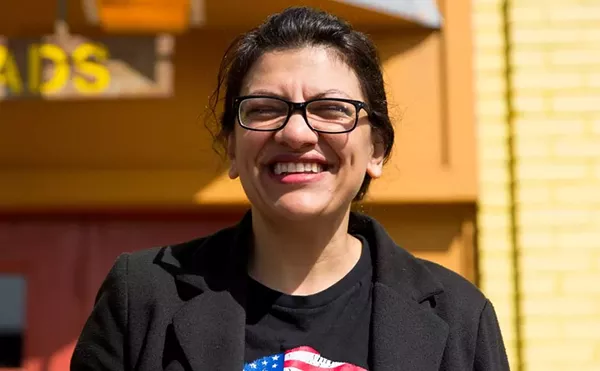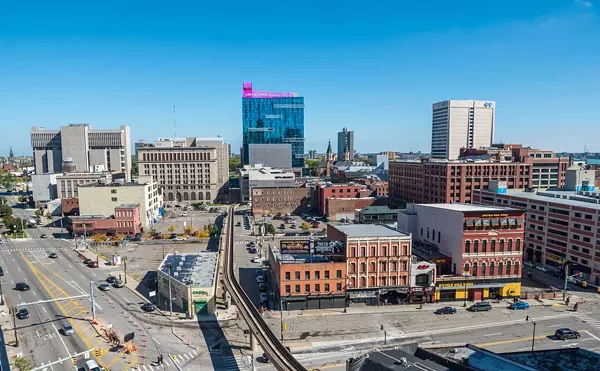
Audio By Carbonatix
[
{
"name": "GPT - Leaderboard - Inline - Content",
"component": "35519556",
"insertPoint": "5th",
"startingPoint": "3",
"requiredCountToDisplay": "3",
"maxInsertions": 100,
"adList": [
{
"adPreset": "LeaderboardInline"
}
]
}
]
A stimulating piece of reporting mixed with commentary appeared over the weekend on the politico.com site. It's a piece entitled "Is There Room for Black People in the New Detroit" by Suzette Hackney, a former Detroit journalist now living and working in Toledo, Ohio. Hackney takes a look at the "New Detroit" — the pockets of redevelopment mostly occupied by freespending white people — and points out how these enclaves of vitality aren't necessarily trickling down to the longtime residents who've stuck it out through tough times.
It's a very fair piece, one that doesn't lay the blame anywhere in particular. Hackney instead asks the very good (and troubling) questions we should be asking, and leaves us free to draw our own conclusions.
Will "gentrification" help or harm Detroit's longtime black residents? Or will it not effect much, if any, change in their lives? It's something worth discussing, though our local media seldom stop cheerleading bulldozers and cranes long enough to question where all this leads.
It calls to mind our discussion, published back in March, with Michael Stone-Richards, the globetrotting, erudite academic of African heritage who works at CCS as a professor. Stone-Richards calls the narrative of white gentrifiers allegedly "pushing out" black Detroiters as a "displacement narrative." In light of this broadening discussion, it's worth reconsidering his words:
This is a conversation about social justice. And social justice needs to be discussed in terms of these larger patterns. The changes that we see, you talked about more educated, higher-paid people moving into the city: Yes, because they see it as offering an incredible opportunity. They are not, I think, thinking whether they’re displacing this or that person. … So I think there’s a kind of “displacement anxiety,” where we don’t have control of the larger conversation about social justice, so we talk about it at the more individual level. … The problem is we do not have an accepted language for social justice, the social safety net. We don’t confront it. And therefore we talk about the way people are being displaced.





